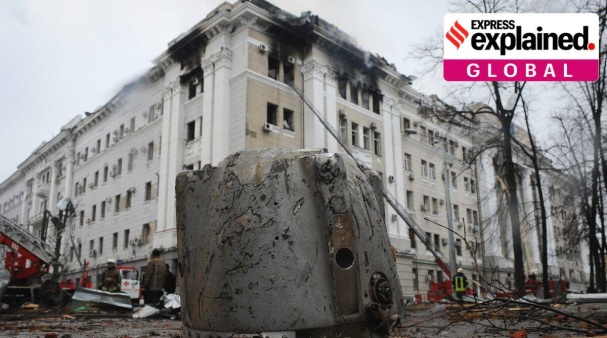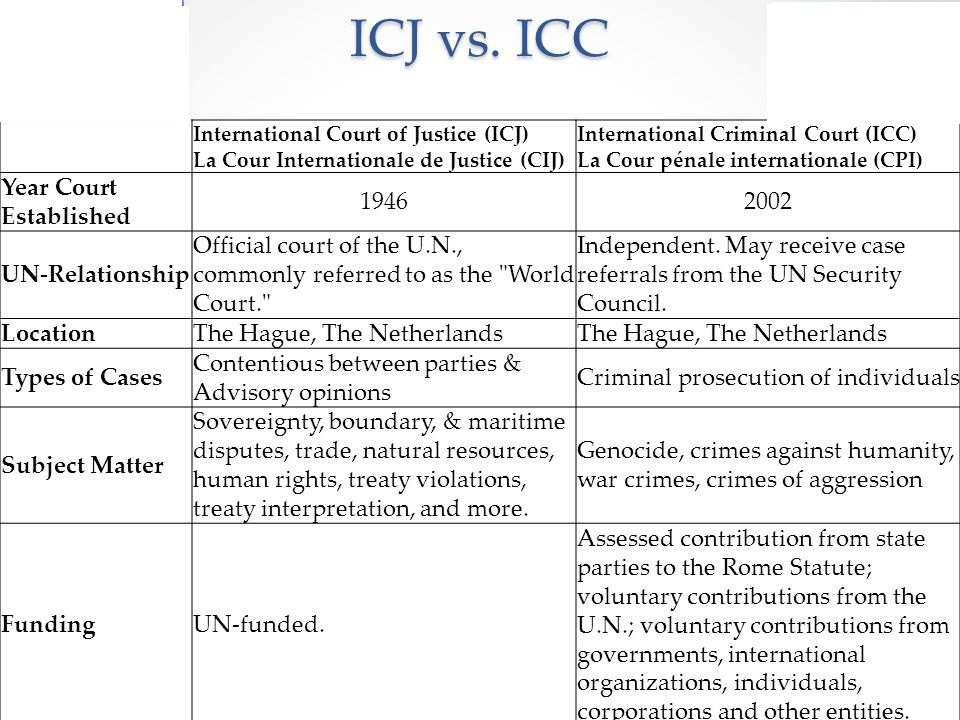Description

Copyright infringement is not intended
Context: President Joe Biden for the first time accused Russia of committing genocide in Ukraine.
Genocide Convention:
- The Convention on the Prevention and Punishment of the Crime of Genocide (CPPCG), or Genocide Convention, is an international treaty that criminalizes genocide and obligates state parties to enforce its prohibition.
- UN treaty defines genocide as actions taken with the “intent to destroy, in whole or in part, a national, ethnical, racial or religious group.
- It was the first legal instrument to codify genocide as a crime, and the first human rights treaty unanimously adopted by the United Nations General Assembly, on 9 December 1948, during the third session of the United Nations General Assembly.
- The Convention entered into force on 12 January 1951 and has 152 state parties as of 2021.
- The Genocide Convention was conceived largely in response to World War II, which saw atrocities such as the Holocaust that lacked an adequate description or legal definition.
- It authorizes the mandatory jurisdiction of the ICJ to adjudicate disputes, leading to international litigation such as the Rohingya genocide case and dispute over the 2022 Russian invasion of Ukraine.
- India has signed and ratified this treaty.
- War crime vs. Genocide: War crimes are defined as occurring in a domestic conflict or a war between two states, while genocide and crimes against humanity can happen in peacetime or during the unilateral aggression of a military towards a group of unarmed people.
War Crimes or Genocides in India:
- War crimes and genocide have been happening in India since Britishers took over but the sad part is that it continued even after independence.
Genocide committed in India after independence:
- Genocide of Sikhs in (1984) – After the 3rd prime minister of India Indira Gandhi was killed by her Sikh bodyguards, there was widespread violence against Sikh community in many parts of India. People belonging to Sikh community were targeted and killed in an inhumane way.
- Exodus of Kashmiri Pandits (1990)- In 1990 all the Kashmiri Pandits were given a warnings from the loudspeakers of the mosques overnight to either convert to Islam or leave Kashmir. All the belongings of Kashmiri Pandits were targeted.
- Gujarat riots (2002) -On 27 February 2002, the pilgrims were returning home by train from Godhra. The train was set on fire by Muslims. The Hindus retaliated at this incident. This clash between the said communities resulted in a riot which lasted for a couple of days.
- Delhi riots (2020) - It was a result of the anti-CAA protests in Delhi which later resulted in riots.
- Bangalore riots (2020) -Mob of thousands of people attacked at the houses of Hindus including the house of a local MLA because his relative shared a poster of Mohammad on social media.
Law Related to Genocide in India:
- Currently there are no lawsrelated to genocide in India.
- There is no provision in Indian lawswhich define ‘genocide’ and ‘war crime against humanity’.
- There are various sections of the Indian Penal Code, 1860 that are used to punish the war crime perpetuators.
- Section 120A and 120B of IPC, 1860says that when two or more people commit a conspiracy to do an illegal act.
- Section 300 of IPC, 1860defines murder and section-302 has the provision of imprisonment for life or death sentence.
- Section 436 IPC, 1860states that any person who tries to destroy or destroys the property such as house or religious place shall be punished with imprisonment for life.
- Section 153A IPC, 1860penalizes any person who promotes enmity between different groups on ground of religion, race, place of birth, residence, language, etc., and acts prejudicial to maintenance of harmony. It can be done by writing, oral words, gestures or any visual representation.
- Section 295 IPC, 1860penalizes any person who destroys damages or defiles any religious place with the intention of insulting the religion.
- In 2005, the government introduced “The Communal Violence (Prevention, Control and Rehabilitation of Victims) Bill, 2005.Unfortunately, it is still a bill and the government is not willing to make it an act. The important provisions of this bill are:
- The responsibility to maintain peace is of both State and Central government.
- Speedy trial and compensation to the victims.
- Police have special powers to search any house for the arms and ammunition.
- Special courts shall be made for the trial of matters related to communal violence.
- Protection to be given to the witness.
- Public officers to be punished for not doing their duty properly.
- Power to the Central government to deploy armed forces only on the request of the State government.
- India ratified the Genocide Conventionon 27 August, 1959 but still there is no concrete law on genocide in India. Indian legislators should enact necessary laws required to deal with the genocide.
International Court of Justice (ICJ):
- It is the principal judicial organof the United Nations (UN).
- It was established in June 1945by the Charter of the United Nations and began work in April 1946.
- ICJ is the successor to the Permanent Court of International Justice (PCIJ), which was brought into being by the League of Nations in 1922.
- Seat: ICJ is based at the Peace Palace in The Hague. It is the only one of the six principal organs of the UN that is not located in New York City.
- Roles:“to settle legal disputes submitted to it by States and to give advisory opinions on legal questions referred to it by authorized United Nations organs and specialized agencies”.
- Membership:All members of the UN are automatically parties to the ICJ statute, but this does not automatically give the ICJ jurisdiction over disputes involving them. The ICJ gets jurisdiction only if both parties consent to it.
- Appellate: The judgment of the ICJ is final and technically binding on the parties to a case. There is no provision of appeal;it can at the most, be subject to interpretation or, upon the discovery of a new fact, revision.
- ICJ has no way to ensure compliance of its orders, and its authority is derived from the willingness of countries to abide by them.
- ICJ has 15 judgeswho are elected to nine-year terms by the UN General Assembly and Security Council, which vote simultaneously but separately. Four Indians have been members of the ICJ so far. Justice Dalveer Bhandari, former judge of the Supreme Court, has been serving at the ICJ since 2012.
India at the ICJ:
- India has been a party to a case at the ICJ on six occasions, four of which have involved Pakistan.
- They are:
- Right of Passage over Indian Territory (Portugal v. India, culminated 1960);
- Appeal Relating to the Jurisdiction of the ICAO Council (India v. Pakistan, culminated 1972);
- Trial of Pakistani Prisoners of War (Pakistan v. India, culminated 1973);
- Aerial Incident of 10 August 1999 (Pakistan v. India, culminated 2000);
- Obligations concerning Negotiations relating to Cessation of the Nuclear Arms Race and to Nuclear Disarmament (Marshall Islands v. India, culminated 2016); and
- (Kulbhushan) Jadhav (India v. Pakistan, culminated 2019).
ICJ Vs. ICC:

https://www.bloombergquint.com/politics/biden-accuses-russia-of-committing-genocide-in-ukraine













